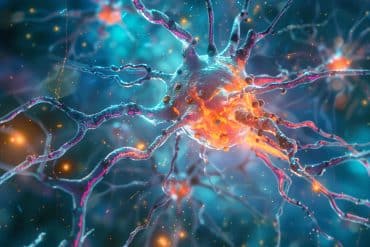Summary: Lonely people process the world uniquely, differing significantly from those who are not lonely.
The research utilized functional magnetic resonance imaging (fMRI) to examine the brain processing patterns of 66 college students while they watched various video clips. The results indicated that individuals experiencing loneliness exhibited more unique and idiosyncratic brain processing patterns.
This finding could help researchers better understand the nuances of loneliness and its impact on mental health.
Key Facts:
- The study utilized functional magnetic resonance imaging (fMRI) to examine the brain processing patterns of individuals who feel lonely.
- Individuals experiencing loneliness exhibited more unique and idiosyncratic brain processing patterns compared to their non-lonely counterparts.
- The idiosyncratic processing patterns in lonely individuals were observed regardless of the number of social connections or friends they had.
Source: USC
The Russian writer and philosopher Leo Tolstoy may have been onto something when he wrote the opening line of Anna Karenina: “Happy families are all alike; every unhappy family is unhappy in its own way.”
A recent study published in Psychological Science and led by a scholar now at the USC Dornsife College of Letters, Arts and Sciences, suggests that when it comes to their brains processing information, people who are not lonely are all alike, but every lonely person processes the world in their own, idiosyncratic way.
Copious research shows that loneliness is detrimental to well-being and is often accompanied by self-reported feelings of not being understood by others.
A recent report from the United States Surgeon General’s office referred to loneliness as a public health crisis in reaction to the growing number of adults suffering from this condition. Even before the onset of the COVID-19 pandemic, approximately half of U.S. adults reported experiencing measurable levels of loneliness.
Loneliness is idiosyncratic
While she was a postdoctoral fellow at UCLA, Elisa Baek, assistant professor of psychology at USC Dornsife, sought to better understand what contributes to such feelings of disconnection and being misunderstood.
Baek and her team used a neuroimaging technique called functional magnetic resonance imaging (fMRI) to examine the brains of 66 first-year college students while they watched a series of video clips. The videos ranged in topic from sentimental music videos to party scenes and sporting events, providing a diverse array of scenarios for analysis.
Before being scanned, the participants, who ranged in age from 18 to 21, were asked to complete the UCLA Loneliness Scale, a survey that measures a person’s subjective feelings of loneliness and feelings of social isolation.
Based on the survey results, the researchers separated the participants into two groups: lonely and “nonlonely” (those not experiencing loneliness). They then scanned each participant’s brain using fMRI as the participant watched the videos.
Comparing the brain imaging data between the two groups, the researchers discovered that lonelier individuals exhibited more dissimilar and idiosyncratic brain processing patterns than their non-lonely counterparts.
This finding is significant because it reveals that neural similarity, which refers to how similar the brain activity patterns of different individuals are, is linked to a shared understanding of the world. This shared understanding is important for establishing social connections.
People who suffer from loneliness are not only less similar to society’s norm of processing the world, but each lonely person differs in unique ways, as well. That uniqueness may further impact the feelings of isolation and lacking social connections.
Baek said, “It was surprising to find that lonely people were even less similar to each other.” The fact that they don’t find commonality with lonely or nonlonely people makes achieving social connection even more difficult for them.
“The ‘Anna Karenina principle’ is a fitting description of lonely people, as they experience loneliness in an idiosyncratic way, not in a universally relatable way,” she added.
Loneliness isn’t about having or not having friends
So, does idiosyncratic processing in lonely individuals cause loneliness, or is it a result of loneliness?
The researchers observed that individuals with high levels of loneliness — regardless of how many friends or social connections they had — were more likely to have idiosyncratic brain responses.
This raised the possibility that being surrounded by people who see the world differently from oneself may be a risk factor for loneliness, even if one socializes regularly with them.
The study also suggests that because social connections or disconnections fluctuate over time, it may influence the extent to which an individual processes the world idiosyncratically.
Looking forward, Baek said she is interested in examining people who have friends and are socially active but still feel lonely. In addition, the researchers are looking at what particular situations lonely individuals process differently.
For example, do lonely people show idiosyncrasies when processing unexpected events or ambiguous social contexts in which things can be interpreted differently?
Funding: Funding for the study came from the National Science Foundation and the National Institute of Mental Health.
About this loneliness and neuroscience research news
Author: Ileana Wachtel
Source: USC
Contact: Ileana Wachtel – USC
Image: The image is credited to Neuroscience News
Original Research: Open access.
“Lonely Individuals Process the World in Idiosyncratic Ways” by Elisa Baek et al. Psychological Science
Abstract
Lonely Individuals Process the World in Idiosyncratic Ways
Loneliness is detrimental to well-being and is often accompanied by self-reported feelings of not being understood by other people. What contributes to such feelings in lonely people?
We used functional MRI of 66 first-year university students to unobtrusively measure the relative alignment of people’s mental processing of naturalistic stimuli and tested whether lonely people actually process the world in idiosyncratic ways.
We found evidence for such idiosyncrasy: Lonely individuals’ neural responses were dissimilar to those of their peers, particularly in regions of the default-mode network in which similar responses have been associated with shared perspectives and subjective understanding. These relationships persisted when we controlled for demographic similarities, objective social isolation, and individuals’ friendships with each other.
Our findings raise the possibility that being surrounded by people who see the world differently from oneself, even if one is friends with them, may be a risk factor for loneliness.








